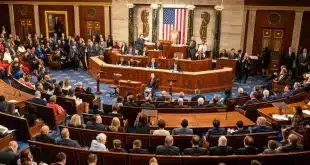In what one of its top executives characterizes as a “philosophical shift,” MasterCard Inc. on Tuesday unveiled a plan by which it will make its payments platforms available to developers through open application programming interfaces, or open APIs. The company will also create a portal for developers where they can access the APIs, get source code and software development kits, test new applications, and work with MasterCard engineers. Josh Peirez, chief innovation officer at MasterCard, says the company is targeting the fourth quarter to roll out the new APIs and the portal.
The decision to open up what had been proprietary MasterCard programming to outside developers represents a dramatic departure for the payments network, which like rival Visa Inc. had historically kept technical developments close to the vest to preserve a competitive edge (Visa refused to comment for this story). Peirez says the idea that “other people are innovating on your platform, not just you” will take some getting used to at MasterCard. But he says the move is necessary to keep up with the pace of innovation in electronic payments, and particularly in e-commerce and mobile payments, where so-called in-app payments, or checkout routines that don’t require leaving an application, are taking root. “You can design your own playground or give others the tools to design you into their playground,” says Peirez. “We chose the latter.”
Observers point out that, like Visa, MasterCard is now a publicly held company rather than a bank-owned membership association. That means the company may be willing to trade openness for faster growth, say some observers. “The whole trick here is to drive volume,” says George Peabody, director for the emerging-technologies advisory service at Mercator Advisory Group Inc., Maynard, Mass. “Here’s a whole cadre of people [developers] who can help drive volume.”
E-commerce kingpin PayPal has enjoyed apparent early success after opening its platform to developers six months ago. The move has bred a raft of applications that embed PayPal payment functionality, including mobile-payment apps and products that bring PayPal close to the physical point of sale through such functions as in-store comparison shopping. Experts cite instant payment capability, especially within applicatons, as especially crucial. “The more payment can be embedded in an application, it’s more convenient for the end user and should drive volume,” notes Peabody.
Still, Peirez says MasterCard was not influenced by PayPal’s experience. “I’m always cautious about accepting the PR put out by my competitors,” he says.
MasterCard’s initiative with developers will include some 20 or so “platforms and services,” the company says, including some that aren’t strictly related to payments but supplement payments products. Examples the company cites include customer-relationship systems, online games, e-commerce sites, e-wallets, mobile apps, and payroll systems. Peirez says payment-related platforms will include bill pay and the inControl platform, which allows issuers to set their own operating parameters for cards. Others will follow later. “We’re going to open up as much of the kimono as we can,” he says.
Developers are apparently interested. Since MasterCard’s announcement early Tuesday morning, the company has received “a bunch” of queries, Peirez says. The early reaction from at least one key developer now using PayPal’s APIs is positive. “I definitely see us looking at the MasterCard APIs,” says Christian Taylor, chief executive of San Francisco-based Payvment Inc., which uses a parallel-payments API from PayPal to handle transactions on its shopping-cart software. Payvment’s software serves retailers and organizations that set up storefronts on Facebook.
An advantage of harnessing developers to create commercial products is that it could help hold down research-and-development costs. The open-API initiative, indeed, springs from the new MasterCard Labs R&D unit the company established only last month. PayPal cited this advantage when it opened its platform to outside developers in November. But Peabody cautions against over-reliance on what amounts to non-payroll brainpower. “It’s hard to imagine innovation without investment,” he says. “Success is not going to be, can [MasterCard] write an API, we know they can do that, but by how useful is the solution. If you’re not helping software developers solve problems for their customers, you’re not going to get anywhere.”
That MasterCard would even consider opening up proprietary code to—and collaborating with—developers who work for a wide array of outside organizations might surprise some who recall how the company once operated as a cozy banking cooperative. But MasterCard, which went public four years ago, must now answer to imperatives, including those of Wall Street, that it never had to concern itself with as a membership association of banks. These can include short-term demands for growth. “They’ve got to drive volume, they’ve got to drive revenue,” says Peabody. “They’re in new cultural waters.”





